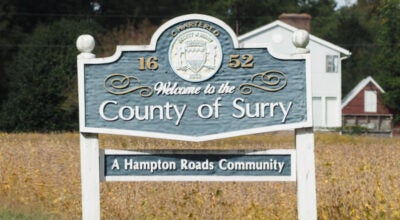Ask questions, avoid mistakes in 2024 gardening journey
Published 10:22 am Tuesday, January 23, 2024
By Mark Carroll
Contributing wrier
Starting a garden this year is a great way to connect with nature and cultivate strong healthy roots. In this article, we will offer some questions to consider as you prepare for the 2024 planting season and some common mistakes.
I recommend always starting with a question. When it comes to gardening, actively learning is important to gardening success. Asking good questions leads to seeking answers, which often leads to more advanced questions.
Here are some suggestions to get your questioning mindset activated:
- What do you “actually know” about gardening? How could you learn more?
- What did you grow well last year?
- Did your expectations match reality last year?
- If yes, do you want to duplicate last year’s garden?
- If no, why not? How could you better meet your gardening goals?
- What inputs do you need for your garden this year? Do you have them already?
- What processes worked well or didn’t?
- What is the condition of your soil?
- How challenging was your garden maintenance routine? Will this year require more or less effort and resources?
- How much water do your plants need and how does it get to where it is needed?
- How much sunlight do your plants need?
- Where are you going to plant and what planting zone are you in?
- When do you want to plant?
Mistakes are part of learning, so as long as you learn from them. You can avoid them in the future.
Here are some common mistakes:
- Planting at the wrong time of the year – most annuals do not like frost.
- Providing too much or too little sunlight, or improper light – photosynthesis is not the same for every plant.
- Too much water or too little water – you can drown or draught your plants and sometimes consistency in watering can be as important as the amount.
- Planting a lot of the same plant in the same area and too close together – plants grow better like they would in nature, and nature doesn’t plant single plants in rows.
- Using too much herbicide – I think any is too much, but most herbicides (weed killers) kill more than just weeds and can build up in the soil.
- Using too much insecticide – similar to the herbicide, insecticides kill huge swaths of insects, good or bad.
- Planting too much. If you are working full-time, planting a half-acre vegetable garden could require much more work and time to maintain.
This article is really just a snapshot of gardening, to keep gardening in your thoughts and stimulate productivity in the new year. You can always find valuable content such as the “Virginia’s Home Garden Vegetable Planting Guide: Recommended Planting Dates and Amounts to Plant” from the Virginia Cooperative Extension online at bit.ly/3SuT53y.
Happy New Year! The Western Tidewater Master Gardeners wish you a productive and educational planting season and look forward to assisting you on your gardening journey.
Virginia Cooperative Extension programs and employment are open to all, regardless of age, color, disability, gender, gender identity, gender expression, national origin, political affiliation, race, religion, sexual orientation, genetic information, veteran status, or any other basis protected by law. An equal opportunity/affirmative action employer. Issued in furtherance of Cooperative Extension work, Virginia Polytechnic Institute and State University, Virginia State University, and the U.S. Department of Agriculture cooperating. Edwin J. Jones, Director, Virginia Cooperative Extension, Virginia Tech, Blacksburg; M. Ray McKinnie, Administrator, 1890 Extension Program, Virginia State University, Petersburg.





